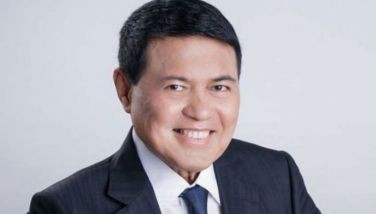Wind developer pushes wider implementation of EVOSS
MANILA, Philippines — A wind energy developer is pushing for a wider implementation of the Energy Virtual One Stop-Shop Act (EVOSS) and an increase in foreign ownership in renewable energy projects to spur the development of the nascent offshore wind industry in the country.
Tri-Conti Elements Corp. and Triconti ECC Renewables Corp. vice president Theo Sunico said wider and more encompassing implementation of the EVOSS would help attract more investments into the offshore wind industry.
Enacted in March 2019, the EVOSS aims to cut back on lengthy government processes and generate more energy investments in the country.
The EVOSS system is an online platform where prospective energy project developers can apply, submit documentary requirements, pay corresponding fees, and monitor the status of their application.
However, the system improvements and reduction timeline under EVOSS is limited only to the Department of Energy (DOE), Sunico said.
“Of 300 plus signatures needed to progress to pre-development to development stage, a vast majority of other agencies, whose signatures are required, still do not fall under those coverage,” he said.
Sunico said lifting and easing of foreign ownership restrictions would also stimulate more investments in the sector.
“To achieve goals of the clean energy scenario of 50 percent renewable energy (RE) generation by 2040 or even by 35 percent by 2030, it will require technical, experience, and capital, which can only be brought in by foreign investors,” he said.
Foreign investors find the foreign ownership limitation a large obstacle to invest in the country.
Sunico said foreign offshore wind developers are not looking to control consortiums developing projects, but they are looking for flexibility to form the consortium.
“They understand the Philippine market is fairly new to offshore. They’re willing to work with uncertainties – uncertainties in market, uncertainties in infrastructure support for offshore wind, uncertainties in regulation… However, they seek flexibility to be able to structure these consortiums in such a way that will allow them to pull more players in to de-risk the project. This definitely is constrained by the 40 percent limit,” he said.
In the RE sector, the DOE allowed 100-percent foreign ownership in biomass projects in 2019, which means foreign firms no longer need to partner with a local entity to construct such facilities.
Meanwhile, the DOE opened the country’s geothermal sector to greater foreign investments last year by allowing 100 percent foreign participation in large-scale geothermal projects.
This is through the third Open and Competitive Selection Process (OCSP3) wherein foreign companies are now allowed to participate in geothermal exploration, development, and utilization activities with a minimum investment cost of $50 million and under the Financial and Technical Assistance Agreements (FTAAs), as provided by the Philippine Constitution.
- Latest
- Trending




























